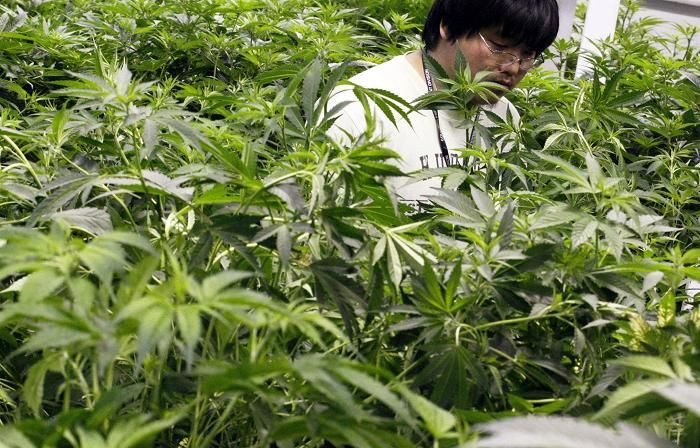Marijuana Legalization Could Be Overturned By Federal Law As President Obama Takes Heat For Sidestepping Issue

Excitement about marijuana legalization in Colorado and Washington has been tempered by local uncertainty about how to proceed and major questions that have plagued lawmakers at the federal level.
There’s a sense of hesitation at the top levels of government to accept the voters' decisions to make marijuana legal for recreational use in both states on Election Day -- and even President Obama, once seen as a pot-friendly candidate, is getting hit with some tough criticism.
Thursday marked the first day of the new freedom in Washington. Residents at least 21 years old are now legally permitted to possess up to an ounce of marijuana, although the laws around selling and growing cannabis remain murky, at best. Official legalization will come to Colorado next month.
Senior White House staffers and top-level Justice Department officials have been debating what to do about the new policies since they were OK'd by voters on Nov. 6, the New York Times reported. Marijuana is still illegal on the federal level, classified as a Schedule I controlled substance alongside heroin, LSD, MDMA, and other drugs banned under the Controlled Substances Act of 1970.
Justice Department brass and top White House aides are reportedly considering suing the two states should they honor the legalization votes, under the premise that federal law trumps state law, even when the state law was passed by a historic voter initiative. If this process were to proceed, it would put the new legislation in both states in serious danger and possibily nullify it altogether. The New York Times reported officials said “no decision was imminent” on how to enforce the new laws. The impact on international drug treaties is also unknown.
Using the drug in public could still cost a smoker a $100 citation in Washington, although the Seattle Police Department is currently using verbal warnings as their only means of enforcement. When the clock struck midnight on Thursday, hundreds of revelers celebrated by smoking underneath the Seattle Space Needle, an event that went off without incident, according to Reuters.
Obama has made no mention of marijuana legalization since the votes in both states last month, and he has mostly remained in the middle of the road when discussing the issue in the past. While he was running for his current office in 2008, the then-U.S. senator said he wouldn’t use “Justice Department resources to try to circumvent state laws [on medical marijuana],” according to Rolling Stone magazine.
While running for re-election four years later, Obama implied the issue was out of his control.
“What I specifically said was that we were not going to prioritize prosecutions of persons who are using medical marijuana. I never made a commitment that somehow we were going to give carte blanche to large-scale producers and operators of marijuana -- and the reason is, because it's against federal law,” Obama told Rolling Stone. “I can't nullify congressional law. I can't ask the Justice Department to say, ‘Ignore completely a federal law that's on the books.’ What I can say is, ‘Use your prosecutorial discretion and properly prioritize your resources to go after things that are really doing folks damage.’”
If the president decides to overrule state law, he would not only be ignoring the obvious voter approvals in Washington and Colorado, but also a new national public-opinion poll showing. A USA Today/Gallup Poll 63 percent of respondents said that once a state votes to legalize marijuana, the federal government should stay out of it. Only 34 percent of respondents said the the feds should overrule state law on the issue.
Colorado Gov. John Hickenlooper, for one, would fall in with the former crowd, and he advised the president to do the same during an interview with "Morning Edition" on NPR.
“Our voters want marijuana to be regulated, like alcohol," Hickenlooper said. "That's what they clearly said.”
© Copyright IBTimes 2024. All rights reserved.





















